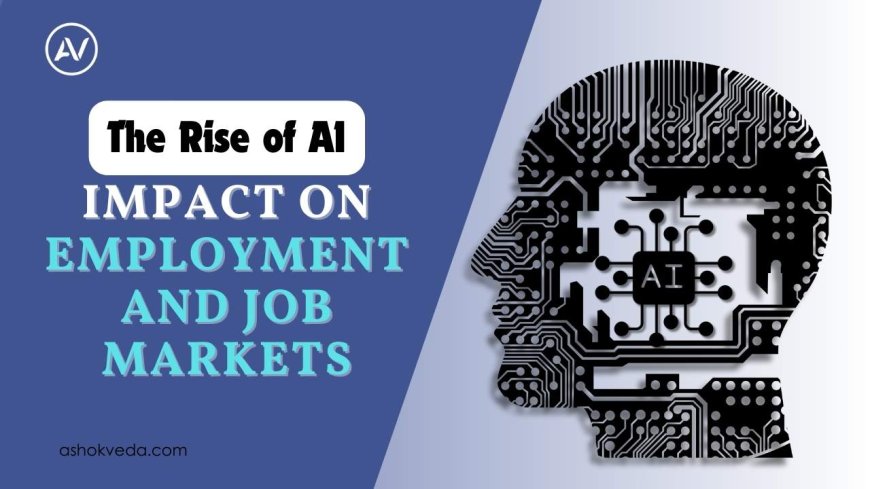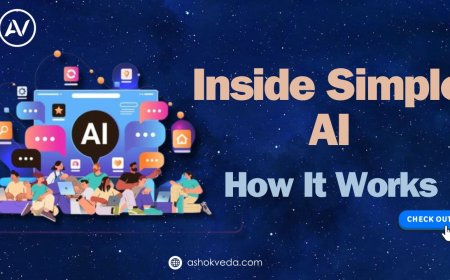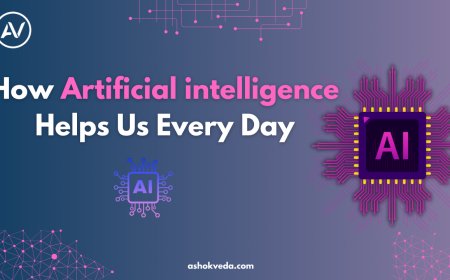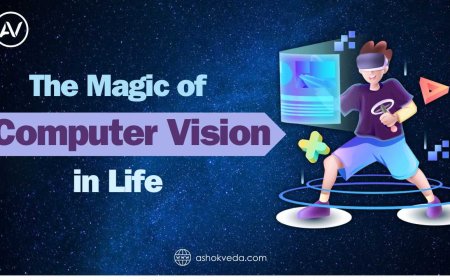The Rise of AI: Impact on Employment and Job Markets
The Rise of AI: Impact on Employment and Job Markets - discover how AI affects jobs, workforce dynamics, automation trends, and the future of employment

Hey! Have you noticed the ways in which artificial intelligence (AI) is transforming the way we live? It's really interesting! We should all be aware of The Rise of AI: Impact on Employment and Job Markets. AI is currently used in many industries for work automation and intelligent decision-making. Our skill sets and employment positions are shifting as a result of this transformation. To adjust and get ready for the future, we need to understand its effects. In this journey, education and AI go hand in hand, helping us to gain the skills needed for success in an AI-driven world. It should be noted that the AI salesforce is transforming the way companies interact with their customers. We can manage these changes and take advantage of the opportunities AI offers by understanding The Rise of AI: Impact on Employment and Job Markets.
Overview of AI in the Workforce
The term artificial intelligence, or AI, refers to the ability of machines or computers to think and learn similarly to humans. They are capable of decision-making, problem-solving, and understanding languages. Artificial intelligence is present in devices such as virtual assistants, recommendation systems, and smartphones. It's all about using technology to give a component of thinking and learning to machines, thus simplifying our lives.
The Rise of AI has Occurred Over the Years
Over time, AI has evolved significantly. In the 1950s, scientists first had ideas about machines that were capable of thinking. The majority of early AI's functions were fairly basic, such as playing chess. As power consumption increased and data volume increased, artificial intelligence (AI) became more advanced.
AI started improving significantly in the 1990s and 2000s, particularly with the internet offering a wealth of data for AI to analyze. AI is already capable of a wide range of tasks, including speech recognition, face recognition, and even vehicle operation. It makes work simpler and more effective in a variety of industries, including healthcare and banking. The development of AI demonstrates how technology is always changing and innovating to better assist humanity.
Examples of AI applications in various industries.
-
Healthcare: Artificial intelligence (AI) supports physicians through picture analysis, disease prediction, and even surgical assistance.
-
Finance: AI is employed in chatbot customer support, trade automation, and fraud detection.
-
Retail: Recommendation engines powered by AI assist customers in finding possible products. It also aids in supply chain optimization and inventory management.
-
Manufacturing: AI boosts quality control, predicts equipment maintenance requirements, and optimizes manufacturing processes.
-
Transportation: AI is utilized in traffic control systems, autonomous vehicles, and delivery route optimization.
-
Education: AI in education assists with grading and feedback, automates administrative duties, and delivers individualized learning experiences.
-
Customer service: AI chatbots increase service efficiency by responding to queries and helping clients around the clock.
Positive Impacts of AI on Employment
Creation of new job opportunities in AI development and maintenance.
AI isn't just changing old jobs; it's also creating new ones. Here are some examples of job opportunities in AI development and maintenance
-
AI developers: These professionals build and develop artificial intelligence (AI) tools and software to carry out particular tasks, such as image identification, natural language processing, and autonomous driving.
-
Data scientists: To help in the creation of AI models, data scientists collect, analyze, and interpret huge amounts of data. They spot patterns and trends that improve AI systems' performance and accuracy.
-
Engineers in machine learning: The design and implementation of algorithms that allow AI systems to learn and make judgments is the primary responsibility of these engineers. They strive to create models that can interpret data and get better with practice.
-
AI Ethics: AI ethicists make sure that artificial intelligence is developed and applied responsibly. They take into account the morals of AI applications, striving to uphold privacy, guarantee justice, and avoid bias.
-
AI Maintenance Technicians: These professionals maintain AI systems by resolving problems and updating them regularly.
-
AI Trainers: By giving AI systems data and feedback to help them perform better, they assist in the training of AI systems.
Negative Impacts of AI on Employment
Potential job displacement and automation of repetitive tasks.
-
Job displacement: As artificial intelligence (AI) and robotics advance, they will be able to replace human labor in some tasks. This implies that certain occupations may disappear, especially in fields where work is repetitive and known.
-
Automation of Repetitive Jobs: Artificial intelligence excels at managing predictable, repetitive jobs. For instance, chatbots in customer service may respond to frequently asked queries, while robots in manufacturing can construct things. Although this increases process efficiency, it may also result in fewer jobs for those who perform these duties.
The Role of Education and Training
Adapting Education Systems: AI is changing the workforce, and our educational systems need to adapt too. It is imperative that educational institutions prioritize imparting employable skills such as data analysis, problem-solving, and coding. This aids in preparing upcoming workers for positions involving AI.
Reskilling Programs and Initiatives: Numerous programs are available to assist current employees in acquiring new skills. These consist of boot camps, workshops, and online courses with an AI and tech skill focus. People can move into different roles more easily thanks to these initiatives.
Success Stories: Learning new skills has enabled many people to move into AI-related careers with success. Someone who used to work in a factory, for example, might pick up coding and data analysis skills and then find a new career creating or maintaining AI systems. These stories show that career changes are possible with the appropriate instruction.
Support from the Public and Private Sectors: An important role in encouraging education and training is played by both the public and private sectors. Governments have the power to support reskilling initiatives and enact laws that support lifetime learning. Private businesses can assist employees in gaining real-world experience by providing training courses, internships, and apprenticeships.
In conclusion, the rise of AI is changing the way we operate. In addition to bringing up new career options in AI development, it also automates some processes, which could result in employment losses. Education must change by teaching knowledge of data analysis and coding. Retraining and assistance programs from the public and private sectors are essential for assisting individuals in making the shift to professions in artificial intelligence. It's about becoming ready for a time when artificial intelligence will be a major factor in our professions.





































